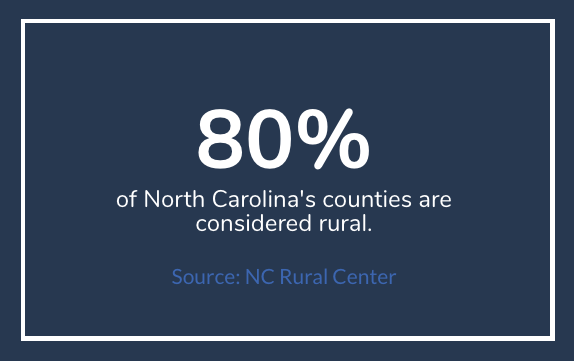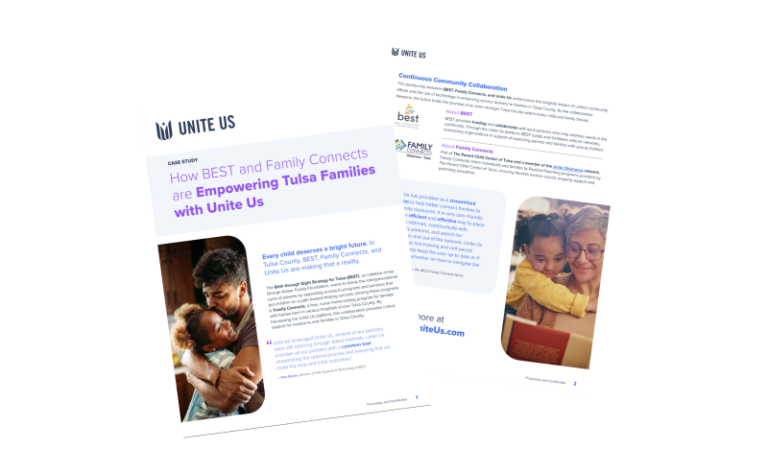
Barriers to Care in Rural North Carolina
Advocating for rural communities has always been a passion of mine. Splitting my formative years between Ramseur, NC (population: 1,692) and Morehead City, NC (population: 8,661), I was shaped by playing hide-and-seek in cow pastures during the day and flounder-gigging at night. Growing up in a small town, I quickly realized the things that came easily to my relatives in bigger cities were harder to come by for my family. Some of these conveniences were minor and related to material things (i.e. the nearest Target was 45 minutes away), however, some were more serious and could be the difference between life or death. When someone you know has a heart attack and the closest cardiovascular surgeon is 30 minutes away, distance matters.
Rural North Carolina by the Numbers
The term rural can have many definitions, but according to the NC Rural Center, rural counties have average population densities of 250 people per square mile or less.1With this definition applied, 80 of North Carolina’s 100 counties are considered rural. In 2017, North Carolina had total population of 10,273,419, with 2,210,611 people residing in rural counties.2

Access to Care in Rural Counties
Access to quality care is vital to good health, yet in rural communities, there can be various barriers to this access.4In these areas, residents may have trouble accessing primary care, emergency services, public health services, dental care, and/or appropriate mental health services. According to Healthy People 2020,5regular and reliable access to healthcare can:
- Prevent disease.
- Detect and treat illnesses.
- Improve quality of life.
- Decrease chance of early death.
Factors impacting access to care in rural North Carolina include health insurance coverage, workforce shortages, distance and transportation, social stigma and privacy issues, and poor health literacy.
One example of workforce shortages concerns the delivery of primary care. When it comes to access to healthcare professionals, rural communities often show disparities. In fact, metropolitan counties in the state have 26.6 physicians per 10,000 residents compared to the most rural counties having only 10 physicians per 10,000 residents.3For the people in these communities, this could mean traveling farther for care, or for those without transportation, foregoing care completely.
Social Determinants of Health for Rural Residents
According to the World Health Organization, social determinants of health (SDOH) are “circumstances in which people are born, grow up, live, work and age, and the systems put in place to deal with illness.”6Rural communities often experience many disproportions in SDOH compared to more urban areas. In North Carolina, the average income in 2016 was $42,244, but in rural areas the average was $34,847. Along the same lines, the poverty rate in rural North Carolina was 18.3%, compared to a poverty rate in urban areas of 13.7%.4
Rural residents may also face barriers related to access to housing, transportation, and affordable, healthy food. These barriers may be particularly impactful for residents who are already financially insecure.
For more information on specific SDOH affecting each county in North Carolina, use this interactive map available through the State Center for Health Statistics: https://schs.dph.ncdhhs.gov/data/hsa/
Looking Forward
It’s often said that there is no silver bullet to solve problems within healthcare. Each community within our state is unique – with different barriers and various solutions. Addressing the problems in rural North Carolina will require community collaborations, not only at an organizational level but also with those that know the community the best: the people who live there. I’m so proud to be from rural North Carolina and if there are three lessons I have learned,they are the following:
- A small-town community can be the best support system in the worst times.
- Not everyone knows what a lightning bug is.
- The word y’all has many meanings.
Learn more about how we’re connecting providers across sectors to combat barriers to care:
References:
2.USDA Economic Research Service: State Fact Sheets
3.The Sufficiency of Health Care Professional Supply in Rural North Carolina
About Unite Us
Unite Us is the nation’s leading software company bringing sectors together to improve the health and well-being of communities. We drive the collaboration to identify, deliver, and pay for services that impact whole-person health. Through Unite Us’ national network and software, community-based organizations, government agencies, and healthcare organizations are all connected to better collaborate to meet the needs of the individuals in their communities.



